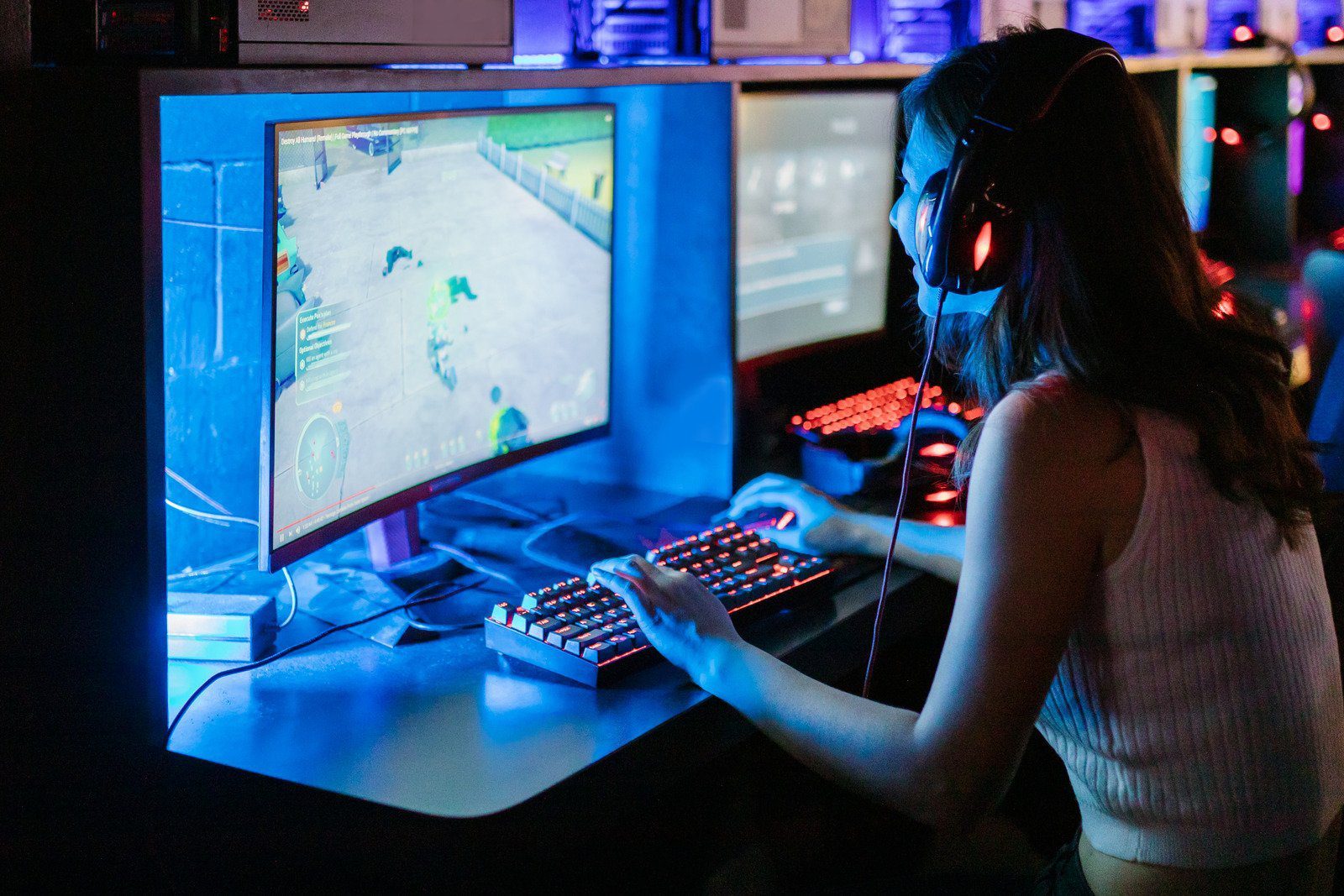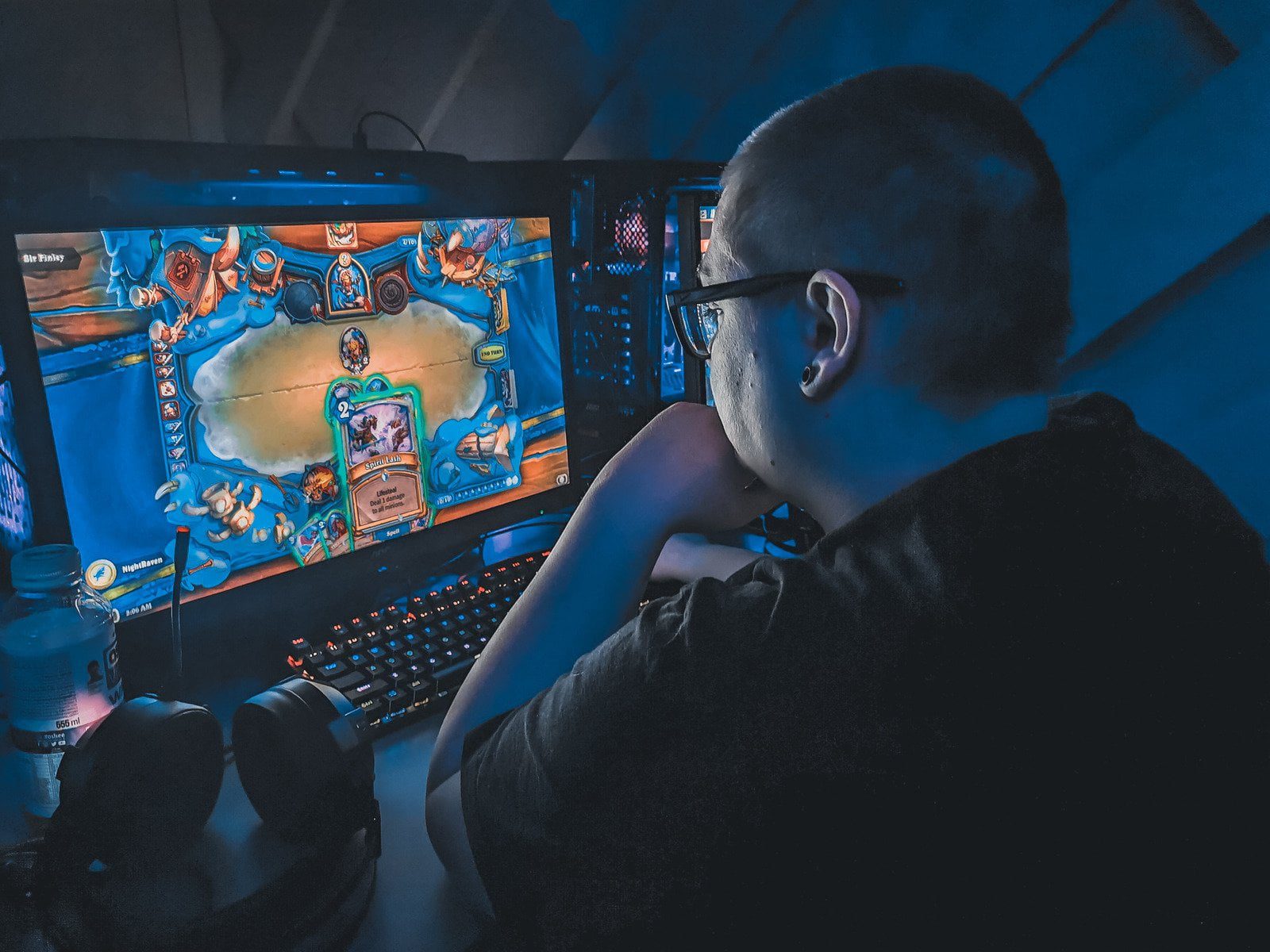Welcome to the immersive world of computer games, where pixels come to life and virtual adventures await! As technology continues to advance, online gaming has taken society by storm, captivating players of all ages and backgrounds. From building empires in strategy games to battling foes in action-packed simulations, the impact of computer games on our culture is undeniable. Let’s dive into how these digital realms shape our society for better or for worse.
The rise of online gaming in society
In recent years, the rise of online gaming has been nothing short of meteoric. What once started as a niche hobby has now evolved into a multi-billion-dollar industry that spans the globe. With advancements in technology and the widespread availability of high-speed internet, players can seamlessly connect with others from different corners of the world in real-time.
Online gaming platforms offer an escape from reality, allowing individuals to step into fantastical worlds where they can be anyone or anything they desire. From massive multiplayer online games to competitive esports tournaments, the options are endless. The sense of community and camaraderie forged through shared experiences in virtual realms is unparalleled.
As more people turn to online gaming for entertainment and social interaction, its influence on society continues to grow exponentially. Whether you’re a casual player seeking relaxation or a dedicated gamer chasing glory, the allure of online gaming shows no signs of slowing down anytime soon.
Positive effects of computer games on individuals
In today’s digital age, computer games have become more than just a form of entertainment. They offer a range of positive effects on individuals that go beyond mere gameplay. One notable benefit is the enhancement of cognitive skills. Engaging in strategic thinking and problem-solving within games can sharpen the mind and improve decision-making abilities.
Furthermore, computer games provide an avenue for stress relief and relaxation. Immersing oneself in a virtual world can act as a temporary escape from the pressures of daily life, allowing players to unwind and recharge their mental batteries.
Moreover, online gaming fosters social interaction and community building. Through multiplayer platforms, individuals can connect with like-minded gamers worldwide, forming friendships and bonds that transcend geographical boundaries.
The positive impact of computer games on individuals extends far beyond simple amusement, offering opportunities for personal growth and connection in an increasingly interconnected world.
A. Improved cognitive skills
In the world of computer games, there is more than just entertainment at play. The cognitive benefits that come with gaming are quite remarkable. When players engage in strategic thinking, problem-solving, and decision-making within the game environment, they are actively exercising their brains.
These mental exercises can lead to improved cognitive skills such as enhanced memory retention, increased concentration levels, and sharper critical thinking abilities. As individuals navigate through complex challenges in games, they are constantly stimulating their brains and fostering a growth mindset.
Furthermore, gaming experiences often require quick reflexes and hand-eye coordination which can have real-world applications beyond the screen. In essence, computer games can serve as a fun yet effective way to keep our minds sharp and agile amidst the digital age we live in today.
B. Stress relief and relaxation
In the fast-paced world we live in, stress and anxiety have become common companions for many. Computer games offer a unique escape from the pressures of daily life, allowing players to immerse themselves in virtual worlds where they can let go of their worries.
The act of gaming can be a form of self-care, providing a much-needed break from reality and offering a sense of control and achievement. Whether it’s exploring fantastical landscapes or engaging in thrilling challenges, computer games allow individuals to unwind and recharge.
Moreover, the interactive nature of gaming can help distract the mind from negative thoughts and emotions, promoting relaxation and mindfulness. By focusing on game objectives and strategies, players can redirect their energy towards something enjoyable and engaging.
Incorporating computer games into one’s routine as a way to de-stress can contribute positively to mental well-being by offering moments of calmness amidst the chaos of everyday life.
C. Social interaction and community building
Computer games have transformed the way people interact and build communities. Gamers from all over the world can connect in virtual environments, forming friendships and alliances that transcend geographical boundaries.
Through online gaming platforms, individuals can collaborate on missions, compete in tournaments, and strategize together to achieve common goals. These shared experiences foster a sense of camaraderie and teamwork among players.
Moreover, computer games provide a platform for social interaction where people with similar interests can come together to share tips, tricks, and experiences. This creates a supportive environment where gamers can learn from each other and bond over their passion for gaming.
The ability to communicate through chat features or voice calls while playing enhances the social aspect of gaming. Players not only engage in gameplay but also develop relationships with fellow gamers, leading to lasting friendships both online and offline.
Negative effects of computer games on individuals
As much as computer games offer entertainment and engagement, they can also have negative impacts on individuals if not managed responsibly. One of the most prevalent concerns is the risk of developing addiction and spending excessive amounts of time glued to screens, impacting other areas of life.
Another downside is the potential for isolation and social withdrawal as players immerse themselves in virtual worlds rather than engaging with real-life interactions. This can lead to a decline in social skills and relationships outside the gaming sphere.
Furthermore, exposure to constant violence in certain games can desensitize individuals to real-world violence, blurring lines between fantasy and reality. It’s essential for players to be mindful of these effects and find a balance between gaming enjoyment and their overall well-being.
A. Addiction and excessive screen time
It’s no secret that the allure of computer games can sometimes lead to addiction and excessive screen time. The thrill of leveling up or completing a challenging quest can be incredibly captivating, making it easy to lose track of time while immersed in gameplay.
For some individuals, this intense focus on gaming can result in neglecting other important aspects of their lives, such as work, relationships, and personal well-being. It’s essential to find a balance between enjoying gaming as a hobby and ensuring that it doesn’t consume all your time and energy.
Setting boundaries and taking regular breaks from gaming can help prevent addiction and reduce excessive screen time. Remember that moderation is key when it comes to indulging in your favorite games – prioritize your overall health and responsibilities above all else.
B. Isolation and social withdrawal
The allure of computer games can sometimes lead individuals down a path of isolation and social withdrawal. It’s easy to get lost in virtual worlds, disconnecting from the real one around us. Hours spent gaming alone can impact relationships with family and friends, as interactions become limited to online chats and multiplayer matches.
As the screen becomes all-encompassing, physical social activities may take a back seat, leading to feelings of loneliness and disconnection from reality. The constant need for solitude in gaming can create barriers in forming new connections or maintaining existing ones outside the digital realm.
It’s essential to find a balance between indulging in gaming escapades and engaging in face-to-face interactions. Prioritizing real-life experiences over virtual ones is crucial for combating feelings of isolation that excessive gameplay might bring about. Remember, life offers adventures beyond the pixels on the screen!
C. Desensitization to violence
As computer games continue to evolve and become an integral part of society and culture, it is essential to acknowledge the impact they have on individuals. While online gaming can enhance cognitive skills, provide stress relief, and foster social interaction, there are also negative effects such as addiction, isolation, and desensitization to violence.
The desensitization to violence that can occur from prolonged exposure to violent video games raises concerns about its implications for society. It is crucial for developers, parents, educators, and policymakers to be aware of these potential consequences and take proactive measures to mitigate them.
A balanced approach towards computer games is necessary. By promoting responsible gaming habits, fostering open communication about the content of games being played, and encouraging diverse forms of entertainment and activities outside of gaming, we can harness the positive aspects while mitigating the negative impacts on individuals within our society.
















